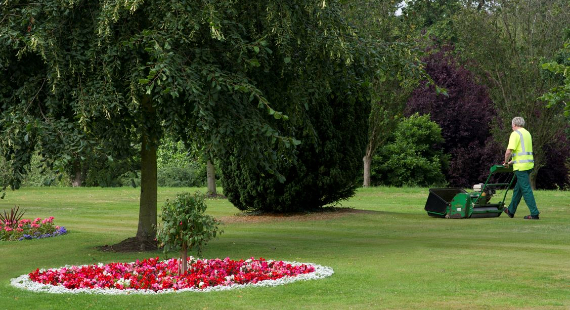- Home
- News
- What’s On
- Activities for Children
- Arts & Crafts
- Autos and Bikes
- Business events
- Car Boot & Auctions
- Charity events
- Churches & Religious
- Comedy
- Dance
- Days out & Local interest
- Education
- Exhibition
- Film
- Gardening & Horticulture
- Health
- Markets & Fairs
- Music
- Nature & Environment
- Spiritual
- Sport
- Talks and Discussions
- Theatre and Drama
- Business
- Local Information
- Jobs
- Deaths
- Charity events
- Contact Us
Nature friendly parks and green spaces

In a bid to enhance the natural environment new ways of managing green spaces are being planned.
From the start of this mowing season, Cheshire East Council will be promoting biodiversity, in the way it already manages the grass areas in some major parks.
In some of the council’s larger parks, managed by its wholly-owned company Ansa Environmental Services, some grass areas will be mown less.
These areas will carry signage to highlight the natural bee friendly benefits.
Ansa will continue to mow areas where there is a need to do so, where the space is currently used for recreational activities such as sports fields or picnic areas.
There will be further trials to increase the use of wildflower mix in South Park, Macclesfield to create an opportunity for natural habitats for birds and butterflies that will be relatively low maintenance once established.
In some areas, there will be increased planting of perennials, reducing waste from the removal and replacement of annual bedding plants. Perennials provide structure and form to areas and as some plants are nectar-rich or provide food for birds, they will help to attract wildlife.
Other plans include allowing hedges in rural and open spaces to grow and flower between maintenance.
The council is also trialling the use of electrical tools in place of traditional petrol-powered ones such as mowers – reducing localised emissions.

Councillor Mick Warren, chair of the environment and communities committee, said: “Restoring nature, conserving heritage and enhancing the beauty of landscapes across Cheshire East is a priority for us. It’s great that we are continually reviewing and planning how we can take a different approach to the way we manage our green spaces – making better choices for the environment by supporting and encouraging habitats to thrive.
“Long grass areas create pretty wildflower meadows, which are really beneficial for wildlife and nature conservation. They are great for butterflies, bees and other pollinators too.
“Hedgerows, when allowed to grow and flower, provide key habitat and resources for wildlife – including food and breeding sites. They also provide a safe way for our wildlife to move around and provide a home for pollinators adjacent to crops.
“We continue to make progress with our activities to reduce our own carbon emissions and protect the future of our borough. Our parks are at the heart of many of our communities and the plans announced in this trial are a great way for our residents to see the benefits that simple changes can make to the beautiful green spaces we are lucky to have on our doorstep.”
For more information on the council’s environment strategy, visit: cheshireeast.gov.uk/environment.
To understand more about what the council is doing to become carbon neutral by 2025, visit: cheshireeast.gov.uk/carbonneutral.

You must be logged in to post a comment Login